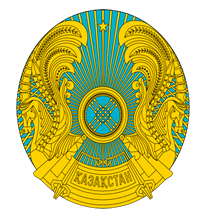Location
Ethnic Kazakhs, a mix of Turkic and Mongol nomadic tribes who migrated to the region by the 13th century, were rarely united as a single nation. The area was conquered by Russia in the 18th century, and Kazakhstan became a Soviet Republic in 1936. Soviet policies reduced the number of ethnic Kazakhs in the 1930s and enabled non-ethnic Kazakhs to outnumber natives. During the 1950s and 1960s agricultural "Virgin Lands" program, Soviet citizens were encouraged to help cultivate Kazakhstan's northern pastures. This influx of immigrants (mostly Russians, but also some other deported nationalities) further skewed the ethnic mixture. Non-Muslim ethnic minorities departed Kazakhstan in large numbers from the mid-1990s through the mid-2000s and a national program has repatriated about a million ethnic Kazakhs back to Kazakhstan. These trends have allowed Kazakhs to become the titular majority again. This dramatic demographic shift has also undermined the previous religious diversity and made the country more than 70% Muslim. Kazakhstan's economy is larger than those of all the other Central Asian states largely due to the country's vast natural resources. Current issues include: developing a cohesive national identity, expanding the development of the country's vast energy resources and exporting them to world markets, diversifying the economy, enhancing Kazakhstan's economic competitiveness, and strengthening relations with neighboring states and foreign powers.
Kazakhstan is a presidential republic.
Source: CIA World Factbook
Members:
Resources
Displaying 21 - 25 of 69Multilateral Agreement on cooperation in the sphere of prevention of natural and technological disasters and mitigation of the consequences thereof.
The Parties have agreed to cooperate in the following spheres: (a) integration of early warning systems and emergency intervention systems; (b) joint participation in the international organizations and programs; (c) liability of each Party for the outbreak and consequences of disasters; (d) prevention of the outbreak of disasters; and (e) autonomous decision-making at the national level.
Amended by: Protocol to Multilateral Agreement on cooperation in the sphere of prevention of natural and technological disasters and mitigation of the consequences thereof. (2015-10-30)
Protocol to Multilateral Agreement on cooperation in the sphere of prevention of natural and technological disasters and mitigation of the consequences thereof.
This Protocol sets up Interstate council on natural and technological disasters performing the following functions: (a) assistance in organization of cooperation between the Parties in the sphere of prevention of natural and technological disasters and mitigation of the consequences thereof; and (b) drafting recommendations for improvement of legislation related to prevention of natural and technological disasters and mitigation of the consequences thereof.
Order No. 767 of the Ministry of Agriculture validating the Regulation veterinary zoning of the territory.
This Order establishes common rules for veterinary zoning of the national territory depending upon epizootic situation classified in the following categories: (a) favourable; (b) under observation; (c) buffer; and (d) unfavourable. The scope of veterinary zoning shall be to prevent introduction and spreading of infectious animal diseases, planning of veterinary arrangements and performing international trade.
Ministerial Decree No. 990 on the state supervision over land use and soil conservation.
The purpose of the state supervision shall be to enforce the rules and regulations on land use, to ensure the correctness of keeping the state land cadastre and land use planning and carrying out the arrangement on the rational land management and soil conservation. The state supervision shall be the competence of the national land institution. The state supervision shall be based on: (a) quality control of land; (b) purposeful land use control; (c) enforcement of land legislation. The state supervision shall be carried out in the form of inspections.
Ministerial Decree No. 96 amending Ministerial Decree No. 511 validating the forms of the land ownership certificates.
The wording “Identification of land tenants” shall be substituted with the wording “Cadastre number of extraneous land plots”. In the Annex 2 related to provisional free-of-charge tenancy of land plots shall be inserted the wording “within the boundaries of land plot (cadastre number).”.
Amends: Ministerial Decree No. 511 validating the forms of the land ownership certificates. (2006-06-06)


